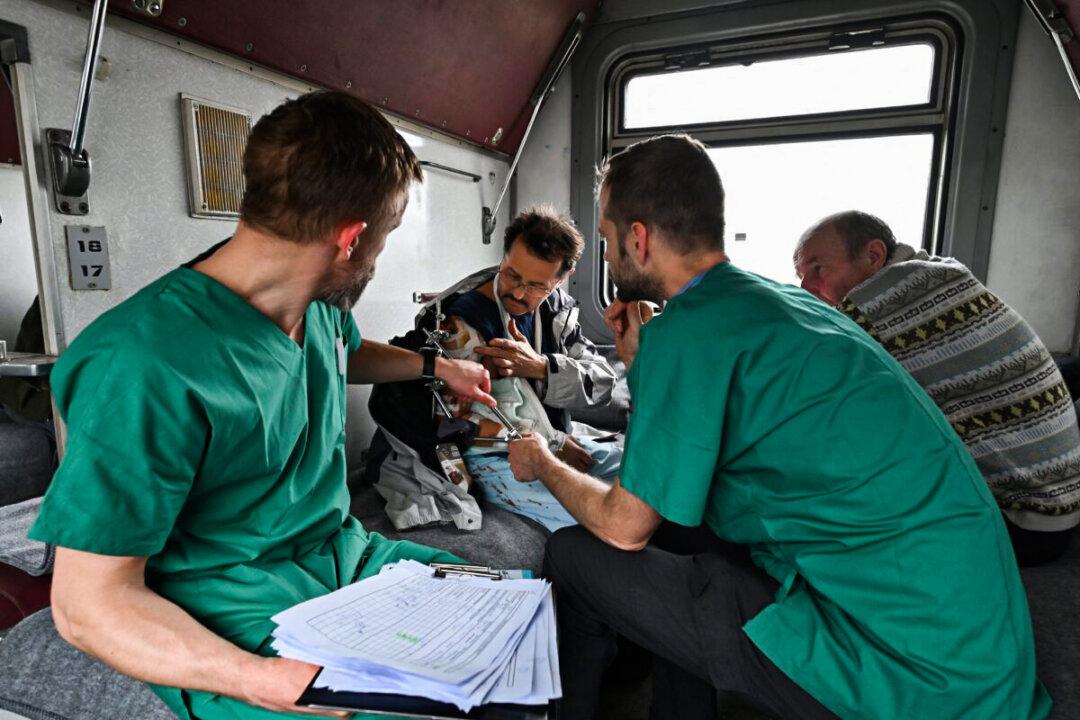The World Health Organization passed a resolution Thursday addressing the Ukrainian health crisis that began with Russian aggression, while rejecting a similar counter-proposal from Russia that failed to mention the country’s role in the war.
The “Health emergency in Ukraine and refugee receiving and hosting countries, stemming from the Russian Federation’s aggression” draft proposal was passed with 88 yes votes, 12 nos, and 53 abstentions during the organization’s 75th World Health Assembly in Geneva, Switzerland.





